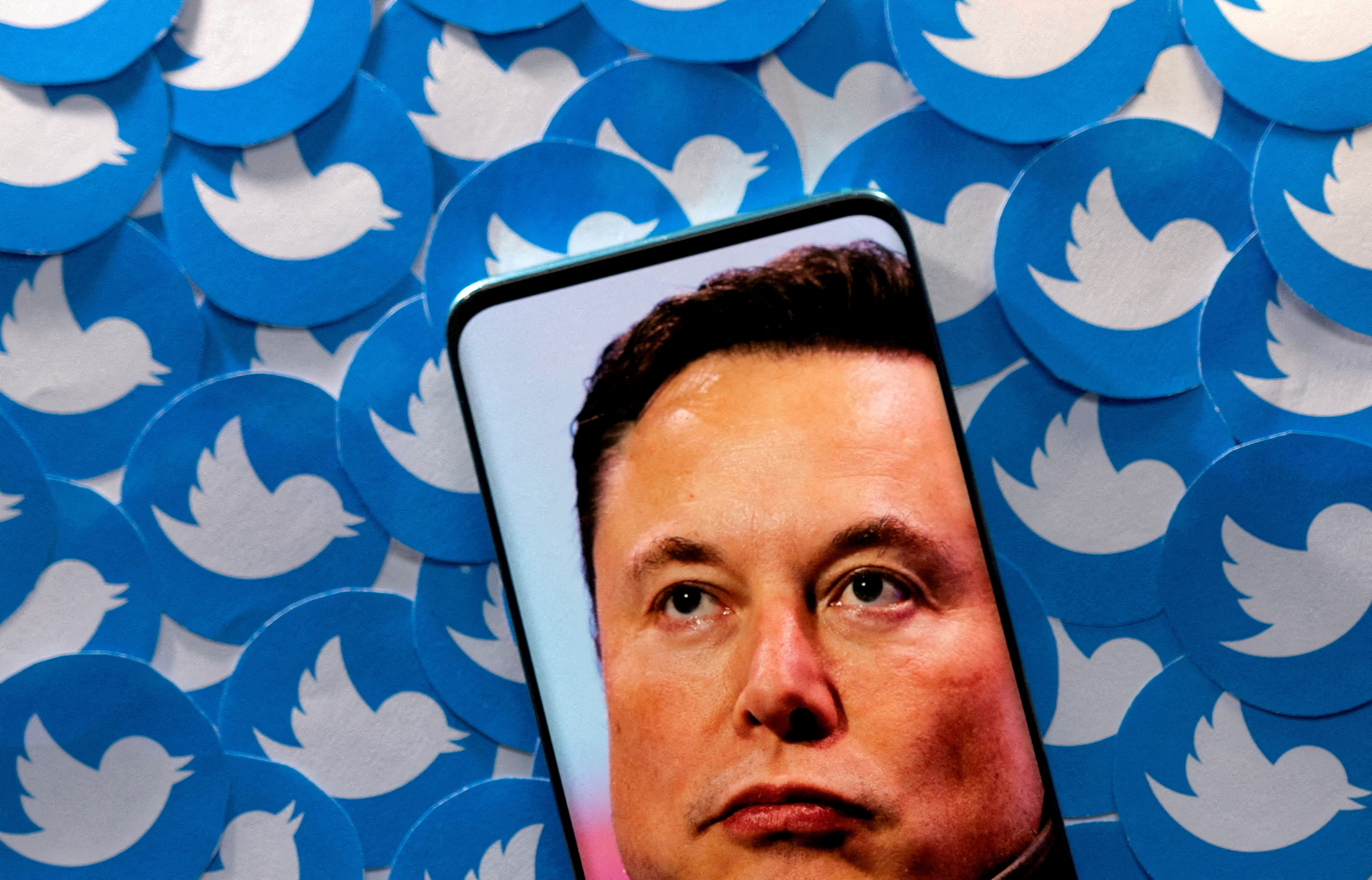
Twitter on Thursday suspended the accounts of several prominent journalists who recently wrote about its new owner Elon Musk, with the billionaire tweeting that rules banning the publishing of personal information applied to all, including journalists.
Responding to a Tweet on the account suspensions, Musk, who has portrayed himself as a free speech absolutist, tweeted: “Same doxxing rules apply to ‘journalists’ as to everyone else,” a reference to Twitter rules banning the sharing of personal information, called doxxing.
Musk’s tweet referred to Twitter’s Wednesday suspension of @elonjet, an account tracking his private jet in real time using data available in the public domain. Musk had threatened legal action against the account’s operator, saying his son had been mistakenly followed by a “crazy stalker”.
It was unclear if all the journalists whose accounts were suspended had commented on or shared news about @elonjet.
“Criticizing me all day long is totally fine, but doxxing my real-time location and endangering my family is not,” Musk tweeted on Thursday.
He had tweeted last month that his commitment to free speech extended “even to not banning the account following my plane, even though that is a direct personal safety risk”. He later tweeted there would be a seven-day suspension for doxxing.
He followed up on Thursday by posting a poll asking Twitter users to vote on when to reinstate accounts of those who had doxxed his “exact location in real-time.”
Twitter did not immediately respond to a request for comment.
Among the journalist accounts suspended was that of Washington Post reporter Drew Harwell (@drewharwell), who wrote on social media platform Mastodon that he had recently written about Musk and posted links to “publicly available, legally acquired data.”
Sally Buzbee, the Post’s executive editor, said Harwell’s suspension undermined Musk’s claims that he intended to run Twitter as a platform dedicated to free speech.
Twitter also suspended the official account of Mastodon (@joinmastodon), which has emerged as an alternative to Twitter since Musk bought it for $44 billion in October. Mastodon could not immediately be reached for comment.
In a move Musk said reflected his commitment to free speech, Musk reinstated the account of former President Donald Trump, who had been suspended from Twitter over his actions surrounding the Jan. 6, 2021, siege of the U.S. Capitol.
“I hope that even my worst critics remain on Twitter, because that is what free speech means,” Musk had tweeted in April.
Twitter is operating with much-diminished staff as thousands have been fired since Musk took over. It is now leaning heavily on automation to moderate content, doing away with certain manual reviews and favoring restrictions on distribution rather than removing certain speech outright, its new head of trust and safety Ella Irwin told Reuters this month.
The accounts of Times reporter Ryan Mac (@rmac18), CNN reporter Donie O’Sullivan (@donie), and Mashable reporter Matt Binder @MattBinder were also suspended on Thursday, as was that of independent journalist Aaron Rupar (@atrupar), who covers U.S. policy and politics.
Mac recently posted a number of Twitter threads on the @elonjet suspension and interviewed Jack Sweeney, the 20-year-old operator of the account.
A spokesperson for The New York Times said: “Tonight’s suspension of the Twitter accounts of a number of prominent journalists, including The New York Times’s Ryan Mac, is questionable and unfortunate. Neither The Times nor Ryan have received any explanation about why this occurred. We hope that all of the journalists’ accounts are reinstated and that Twitter provides a satisfying explanation for this action.”
CNN said “the impulsive and unjustified” suspensions were concerning but not surprising. The network said it had asked Twitter for an explanation and would reevaluate its relationship with the platform based on that response.
The other reporters could not immediately be reached for comment.

